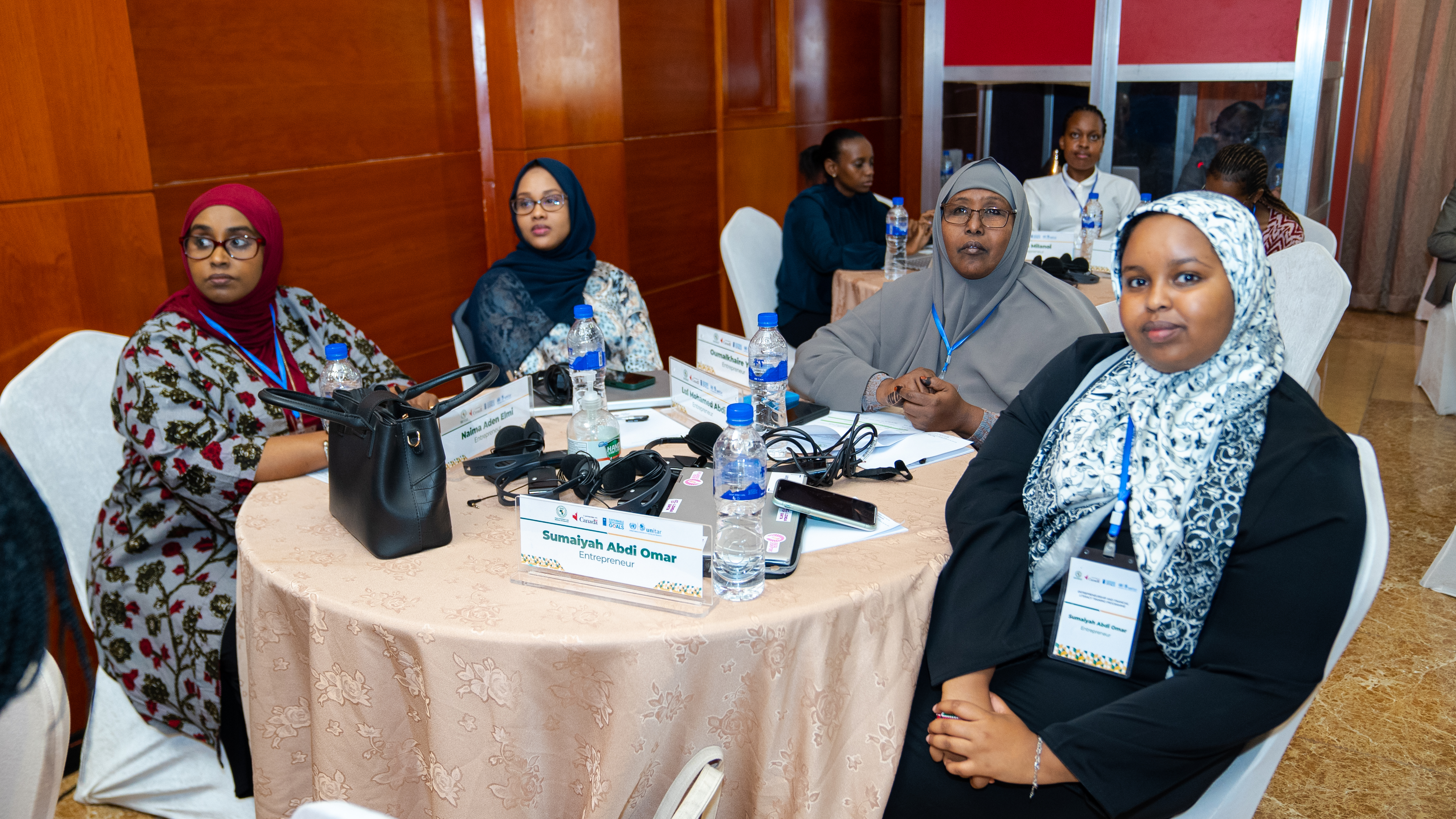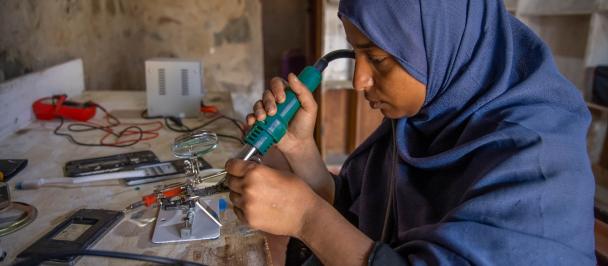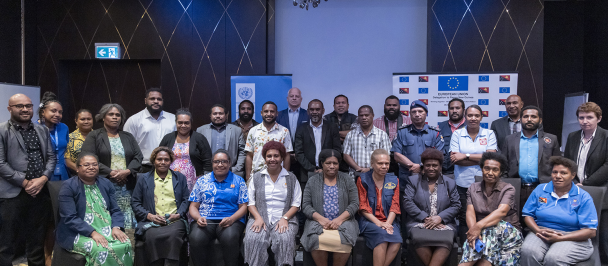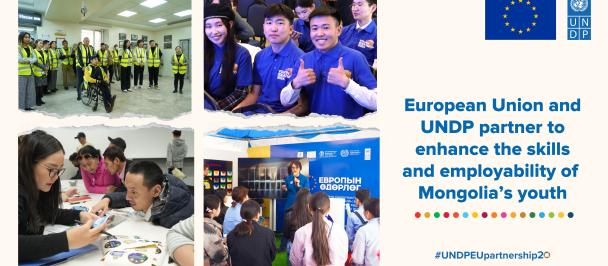Sumaiyah Omar, a young lawyer from Nairobi, used the knowledge gained from the Entrepreneurship and Financial Literacy Training Programme, to grow her law firm and establish her tech consulting firm, Ideate Tech Policy Africa.
Empowering women entrepreneurs in Africa: Sumaiyah’s journey of growth and resilience
March 7, 2024
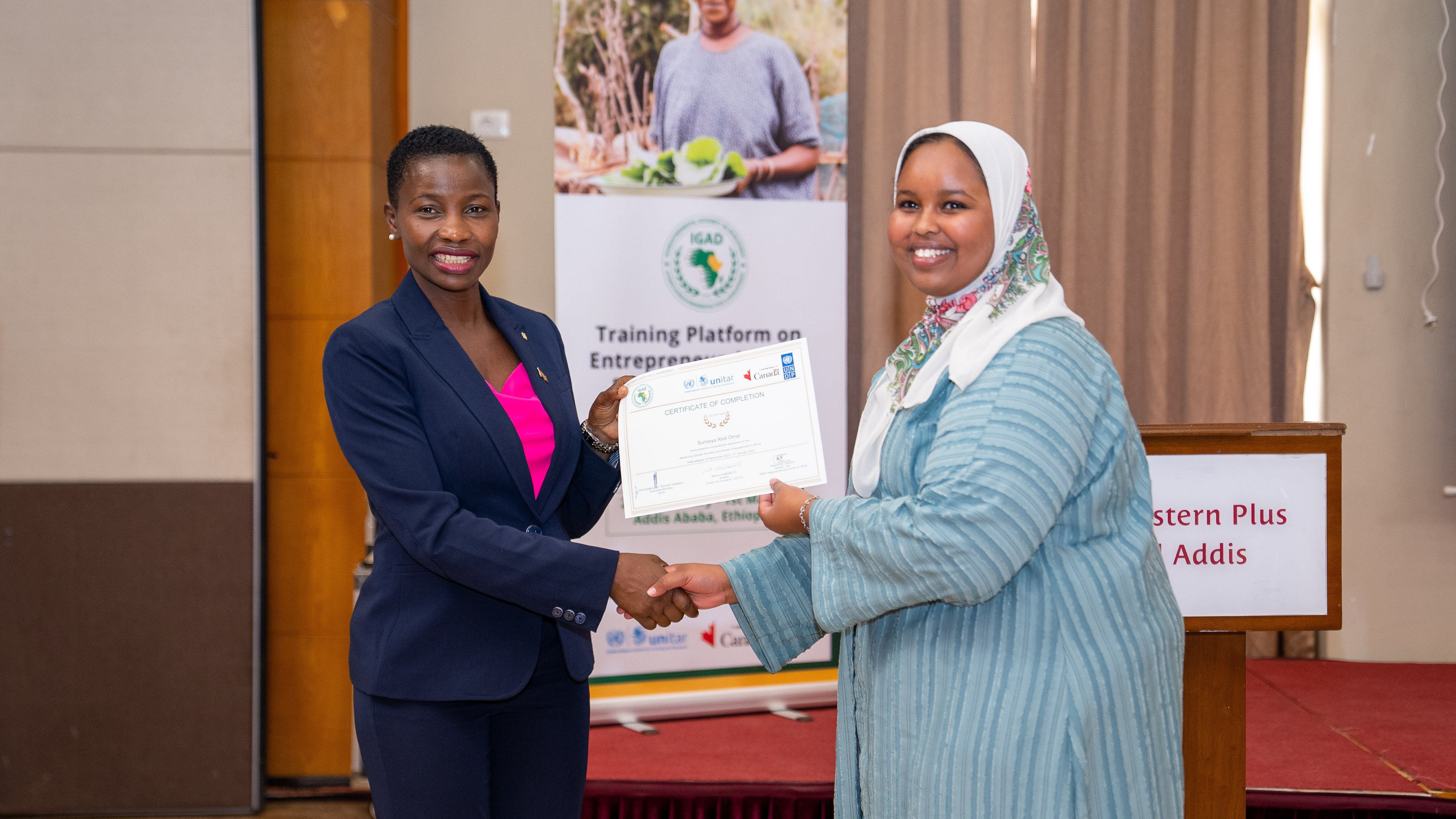
Sumaiyah Omar Presented with her certificate of completion during the In Person Entrepreneurship Training held by UNDP, UNITAR and IGAD, Credits: Mopix Productions/UNDP
The promise of the African Continental Free Trade Agreement (AfCFTA) symbolizes the continent’s increasing growth and integration, ushering in new opportunities for women to thrive in business and position them in the driving seat of Africa’s economic transformation.
Yet, there are real challenges that could potentially jeopardize their ability to fully contribute to this new vision. The unequal burden of care work, precarity, low wages and scant opportunities to lead businesses contribute to a dangerous cycle of poverty and inequality. For example, women's participation in the labor market is 11% lower than that of men in Africa, while women earn 30% less than men in sub-Saharan Africa. In addition, women entrepreneurs face significant challenges in business, with women comprising a majority (58%) of Africa's informal sector workers, but only representing 20% of formal business owners. They often must navigate limited access to seed capital, lack adequate training opportunities, and face discrimination in the workplace.
In response to these challenges, UNDP and the United Nations Institute for Training and Research (UNITAR) launched the Entrepreneurship and Financial Literacy Training Programme in 2022 to help women entrepreneurs develop the skills to scale their businesses. The curriculum, which covers topics such as financial management, sustainability, marketing and cultivating an entrepreneurial mindset, seeks to equip women entrepreneurs with the foundational tools to strengthen their enterprises and invest in their communities.
Sumaiyah Omar, a young lawyer from Nairobi, used the knowledge gained from the programme to grow her law firm and establish a tech consulting firm, Ideate Tech Policy Africa (ITPA). Aligning with this year’s International Women’s Day call to action — Invest in Women — Sumaiyah's story illustrates the impact of investing in women entrepreneurs.
Her journey, as many entrepreneurs face, initially came with challenges. “I had finished my bar exam and didn’t see many women who started their law firms in Kenya – especially those who are Muslim and Kenyan-Somali women like me...so I really relied on learning as I go. My formal training is as a lawyer, but I didn’t have the skills to actually run a business. My biggest incentive was to learn financial planning, plan around risks around financing, but also learn and interact directly with other entrepreneurs."
Sumaiyah’s early entrepreneurial journey was not immune to the impact of COVID-19, with her law firm launching from home at first, "during those months, I was able to raise enough money to get an office space and furnish it."
Participating in the entrepreneurship training programme was a turning point in Sumaiyah's journey. In addition to her law firm, she was also keen to put her newly acquired knowledge into action for her second business, Ideate Tech Policy Africa, launched in early 2023. “The financial management course was really helpful, but I really enjoyed the ‘Building a Sustainable Enterprise’ course. The unit on establishing a non-profit spoke to me as I am trying to open a non-profit wing for my tech consulting business that will impact the community.”
The value of networking and building relationships was also a fundamental part of Sumaiyah’s learning journey in the programme. “I really liked the ability to chat with other participants online, and later meeting them physically in February. We got to share our entrepreneurship journeys one-on-one and build networks. It was great to meet women entrepreneurs from my country and from other countries.”
Women should also be allowed to make mistakes and fail in their entrepreneurial journey if we want them to eventually be successful.
Sumaiyah envisions an Africa of equal opportunity and support for women entrepreneurs. “In the entrepreneurial realm, women's mistakes, which are an inherent part of the journey, are often met with less room for recovery compared to men. Men are often granted the freedom to experiment with seed capital, even if their ventures don't pan out as planned. Women should also be allowed to make mistakes and fail in their entrepreneurial journey if we want them to eventually be successful.”
With support from the Government of Canada, UNDP's regional initiative on gender equality and women's empowerment champions individuals like Sumaiyah, by providing African women with the essential resources to improve their livelihoods and drive meaningful change across the continent.
The initial cohort was launched in partnership with the Intergovernmental Authority on Development (IGAD) and the Government of Canada, bringing together 25 entrepreneurs from Eritrea, Kenya, Somalia, Sudan, South Sudan and Uganda. The online programme has currently expanded to its second cohort, with 5,000 participants from the Economic Community of Central African States (ECCAS), the Southern African Development Community (SADC), and the Economic Community of West African States (ECOWAS).
For more information, contact
Michelle Mendi Muita, Regional Communications Specialist, UNDP Regional Service Centre for Africa Addis Ababa, Ethiopia michellemendi.muita@undp.org
Housam Silim, Gender and Communications Analyst UNDP Regional Service Centre for Africa Addis Ababa, Ethiopia housam.silim@undp.org

 Locations
Locations